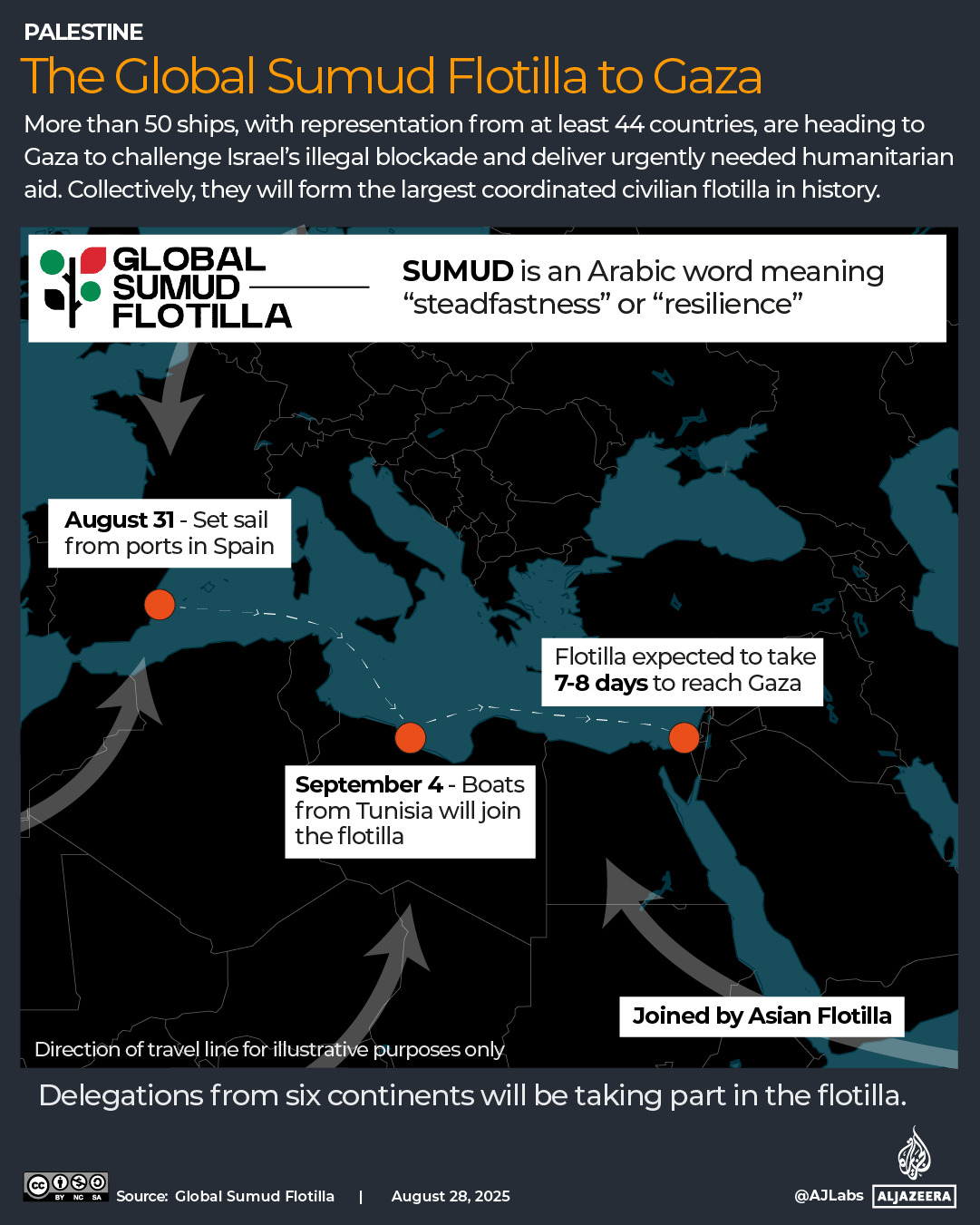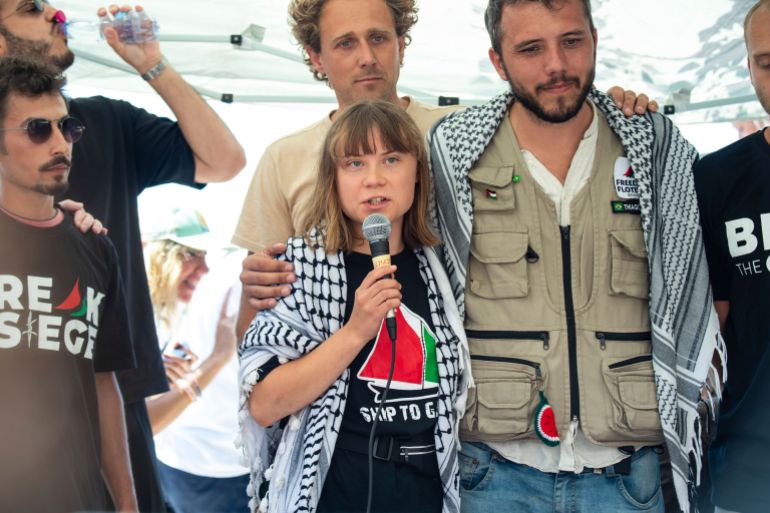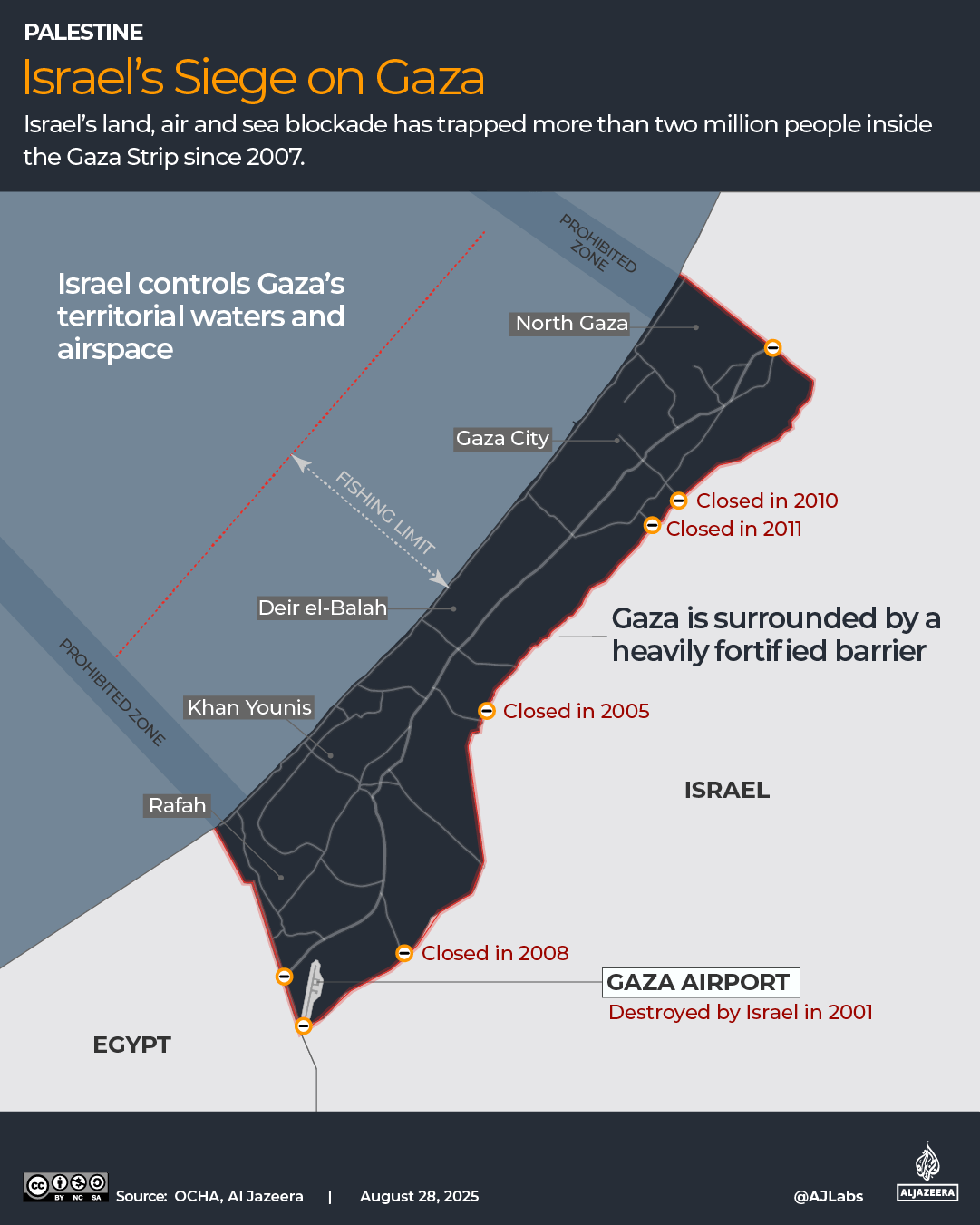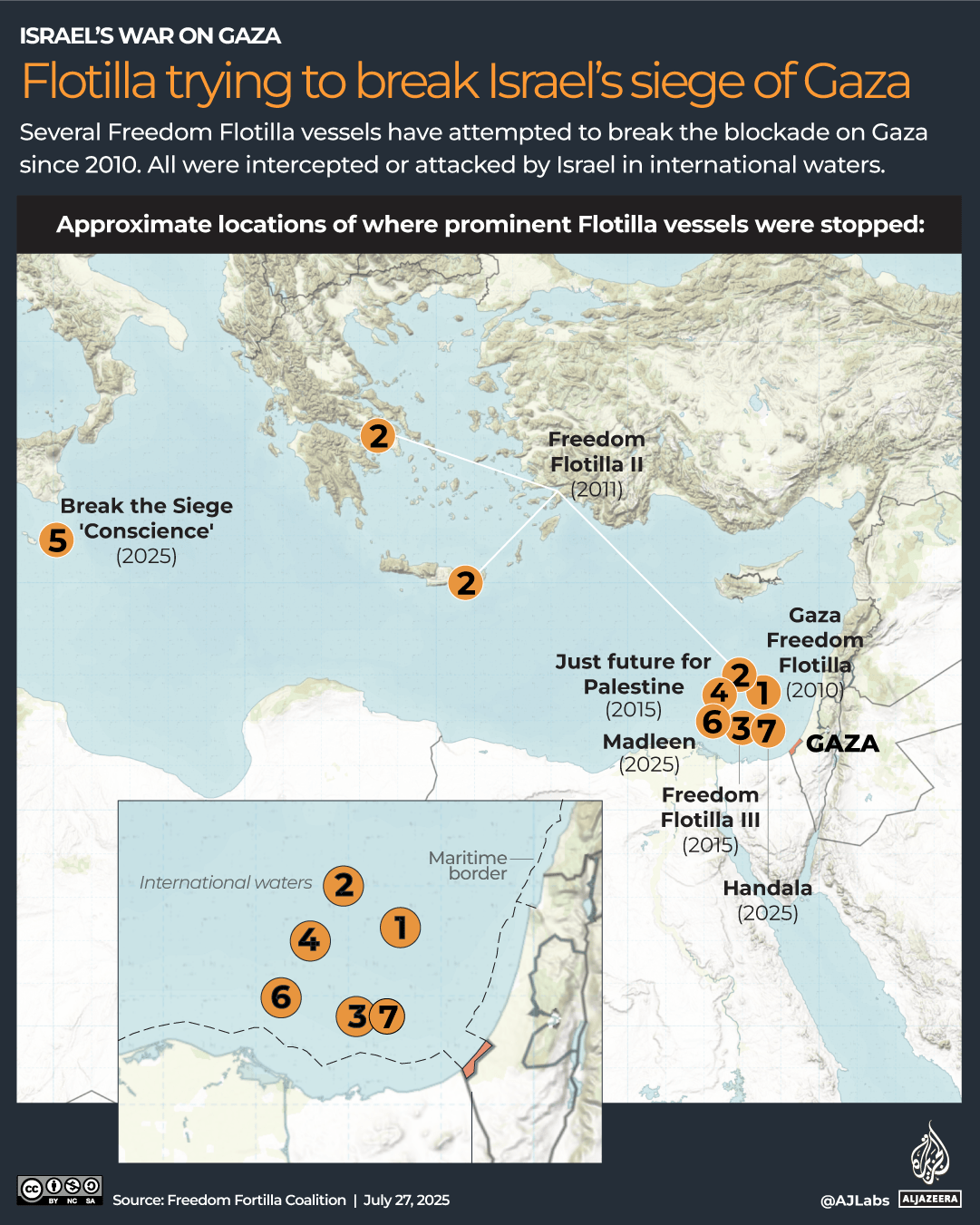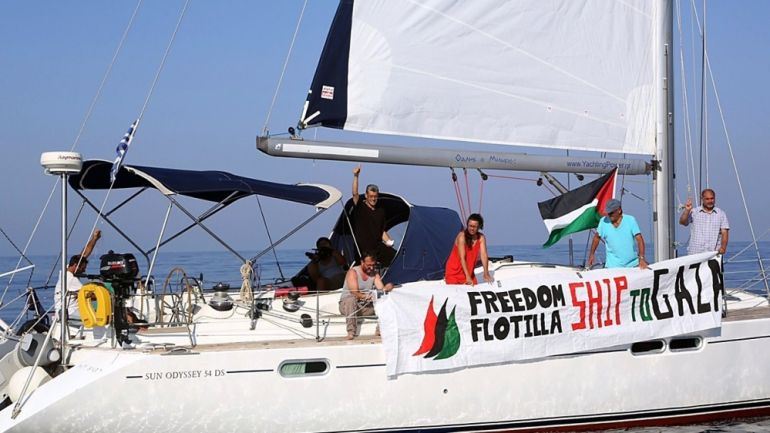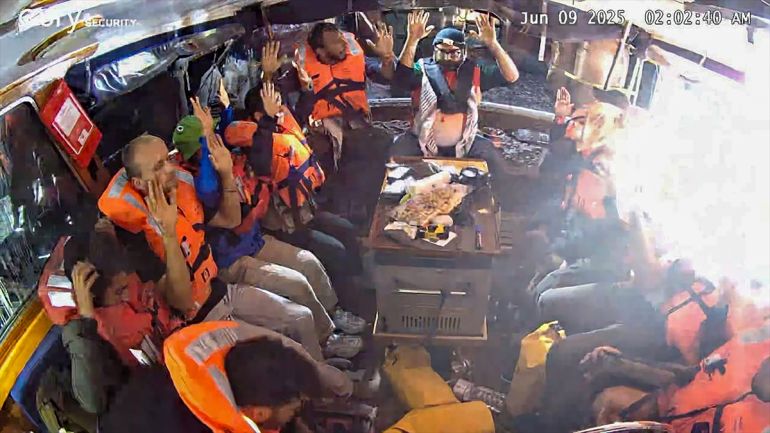The Global Sumud Flotilla (GSF), bound for the Gaza Strip, says a drone struck its main ship in the Tunisian port of Sidi Bou Said, causing a fire, but that all its passengers and crew were safe.
A spokesman for the GSF blamed Israel for the incident, which occurred late on Monday, but the Tunisian National Guard said reports of a drone attack were “completely unfounded”.
Recommended Stories
list of 4 itemsend of list
The agency instead suggested that the fire was caused by a cigarette butt or a lighter setting a life jacket ablaze.
The GSF, however, insisted the incident was a drone attack and said it would provide more details on Tuesday morning.
There was no immediate comment from Israel.
The GSF comprises more than 50 boats, heading for Gaza to break the Israeli siege on the war-battered and famine-stricken Palestinian territory.
According to the GSF, the incident on the Family Boat, which is sailing under a Portuguese flag and carrying the group’s steering committee members, took place at 11:45pm on Monday. There were six people on the boat at the time of the drone attack, and some of the passengers quickly extinguished the fire.
All crew members are safe, it said in a statement.
The fire caused damage to the ship’s main deck and below-deck storage, it said.
‘Huge explosion’
The GSF posted multiple videos on social media that it said showed the moment the attack took place.
One video, taken from another vessel near the Family Boat, showed an incendiary device falling on the boat, causing an explosion. Another video, captured on the Family Boat’s security cameras, shows crew members looking up and jumping back before an explosion.
Miguel Duarte, who was on board the Family Boat and witnessed the attack, told the Middle East Eye that he saw a drone hovering over the vessel before it dropped an explosive device.
“I was standing in the back part of the ship, the aft deck, and I heard a drone,” Duarte said in the video posted online by MEE.
“I saw a drone clearly about 4 metres [13 feet] above my head. I called someone. We were looking at the drone, just above our heads, really,” he recounted.
The drone stopped close to the two crew members, then moved slowly to the forward deck of the ship, and dropped what was “obviously a bomb”, he said.
“There was a huge explosion, lots of fire, big, big flames … We could have been killed,” Duarte added.
Members of the GSF held Israel responsible for the attack, noting the Israeli military’s past assaults on ships bound for Gaza.
“There is no other authority that would do such an attack, such a crime, except the Israeli authorities,” spokesperson Saif Abukeshek said in a video posted on the GSF’s official Instagram page.
“They have been committing genocide for the past 22 months, and they are willing to attack a peaceful, non-violent flotilla,” he added.
Tunisia’s National Guard, however, denied reports of a drone attack, saying on its Facebook page that initial investigations show the fire broke out in one of the life jackets on the ship “as a result of a lighter or cigarette butt”.
It added, “There was no evidence of any hostile act or external targeting.”
The GSF later announced it would hold a news conference at 10am local time on Tuesday (09:00 GMT) to update the media and the public about the attack.
The United Nations special rapporteur on Palestine, Francesca Albanese, who is taking part in the flotilla, said while details of the attack have to be verified, Israel has a long history of attacking Gaza-bound ships.
“If it’s confirmed that this is a drone attack, it will be an assault and aggression against Tunisia and against Tunisian sovereignty,” Albanese said.
“Again, we cannot keep on tolerating this and normalising the illegal.”
GSF says its mission will continue
Several flotillas have attempted to break the blockade of Gaza in the past.
In 2008, two boats from the Free Gaza Movement, founded in 2006 by activists during Israel’s war on Lebanon, successfully reached Gaza, marking the first breach of Israel’s naval blockade.
Since 2010, however, Israeli forces have intercepted or attacked all such flotillas in international waters, sometimes using deadly force. This includes Israel’s raid on the Mavi Marmara in 2010, during which its commandos killed 10 activists and wounded dozens of others.
There have been three attempts to break the Israeli siege of Gaza this year. The first one, organised by the Freedom Flotilla Coalition (FFC), was aborted in May after drones struck the Conscience ship off the coast of Malta. The FFC blamed the attack on Israel.
The other bids, on the Madleen and Handala, were intercepted by Israeli forces off the coast of Gaza in international waters, and activists were detained and deported.
The GSF organisers say the latest attempt is the largest maritime mission to Gaza, bringing together more than 50 ships and delegations from at least 44 countries. Its participants include Swedish activist Greta Thunberg, Nelson Mandela’s grandson Mandla Mandela and French actress Adele Haenel.
The first convoy of the flotilla departed from Spanish ports on August 31 and arrived in Tunisia last week. The group was due to depart from Tunis on Wednesday.
Abukeshek, the GSF spokesman, said the flotilla is determined to continue the mission despite the attack.
“We will continue our preparation as soon as we make sure the ships are safe and the crew and the participants are safe,” he said.
“We will continue to break the siege on Gaza.”
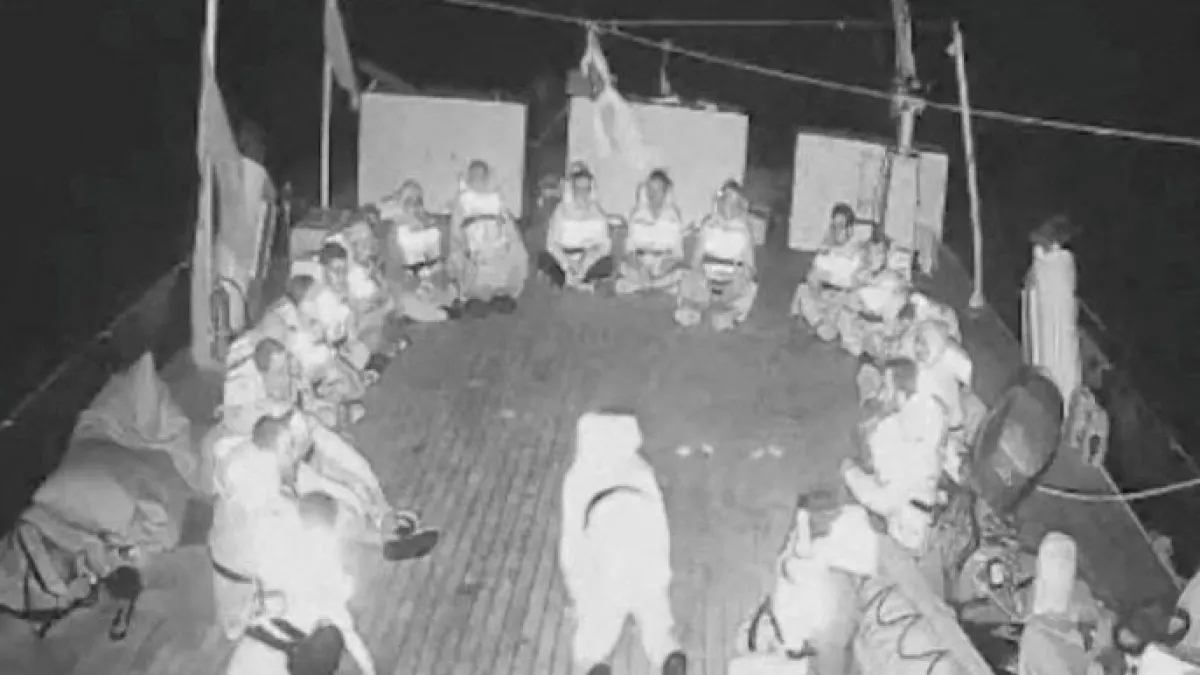
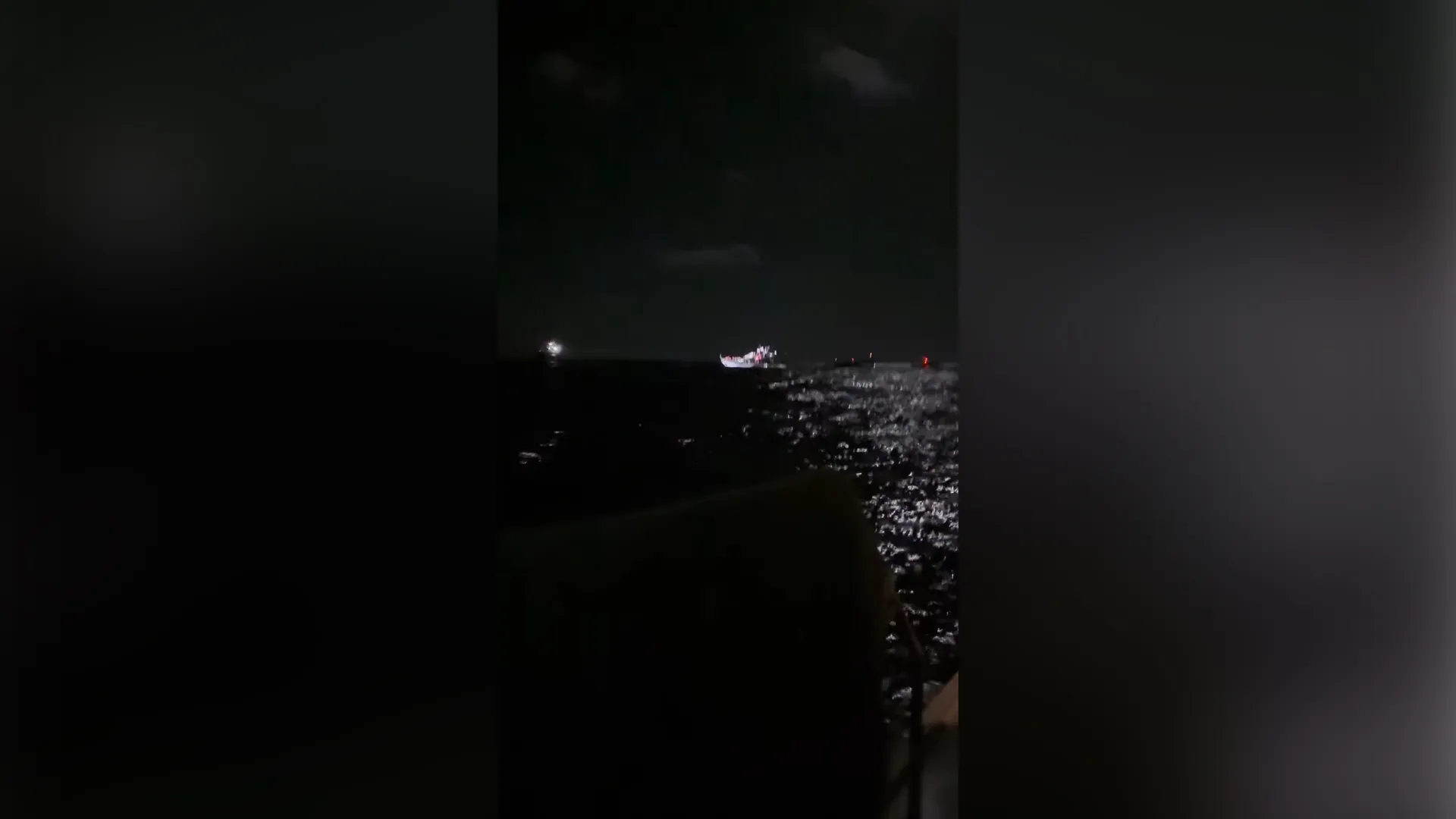
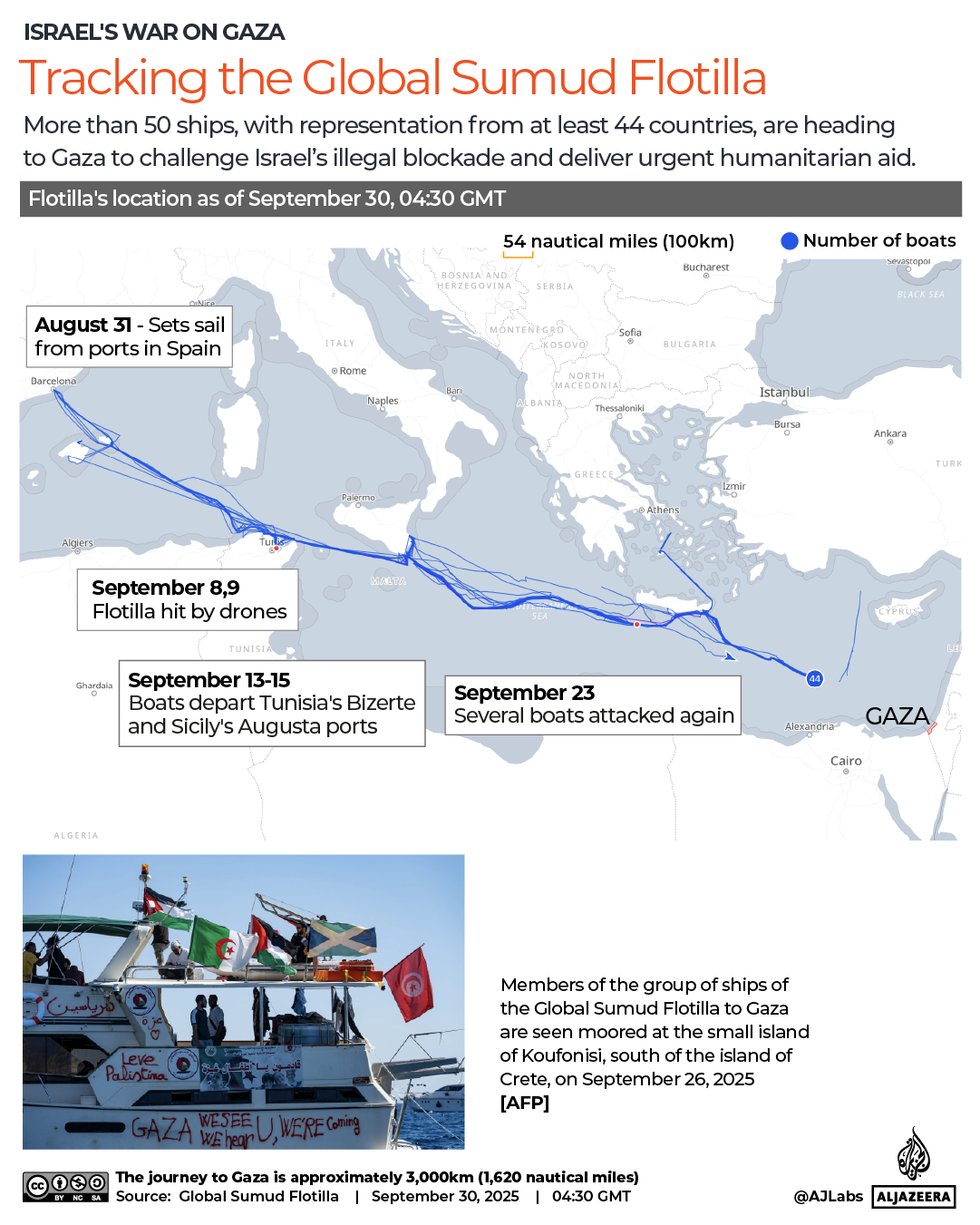
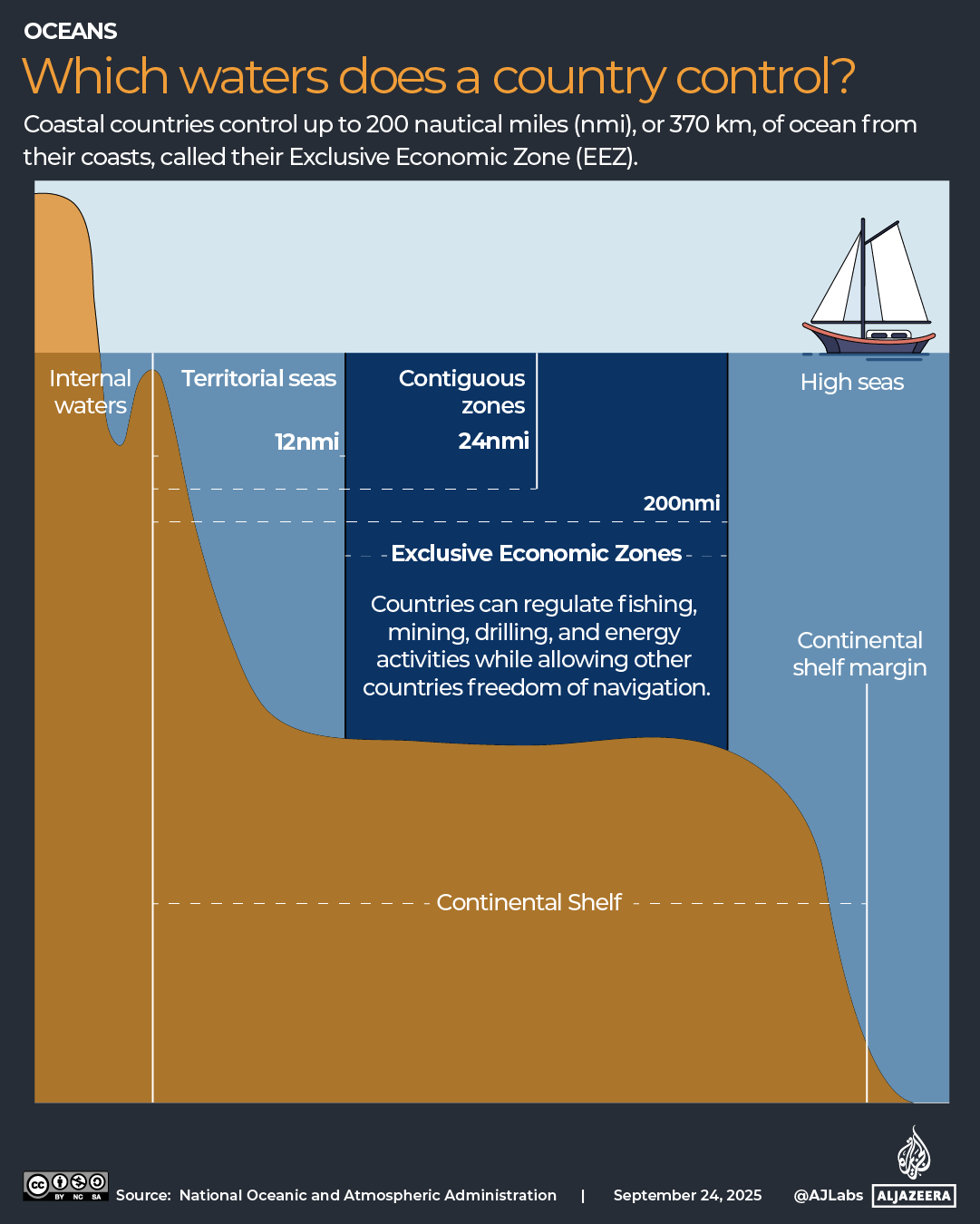
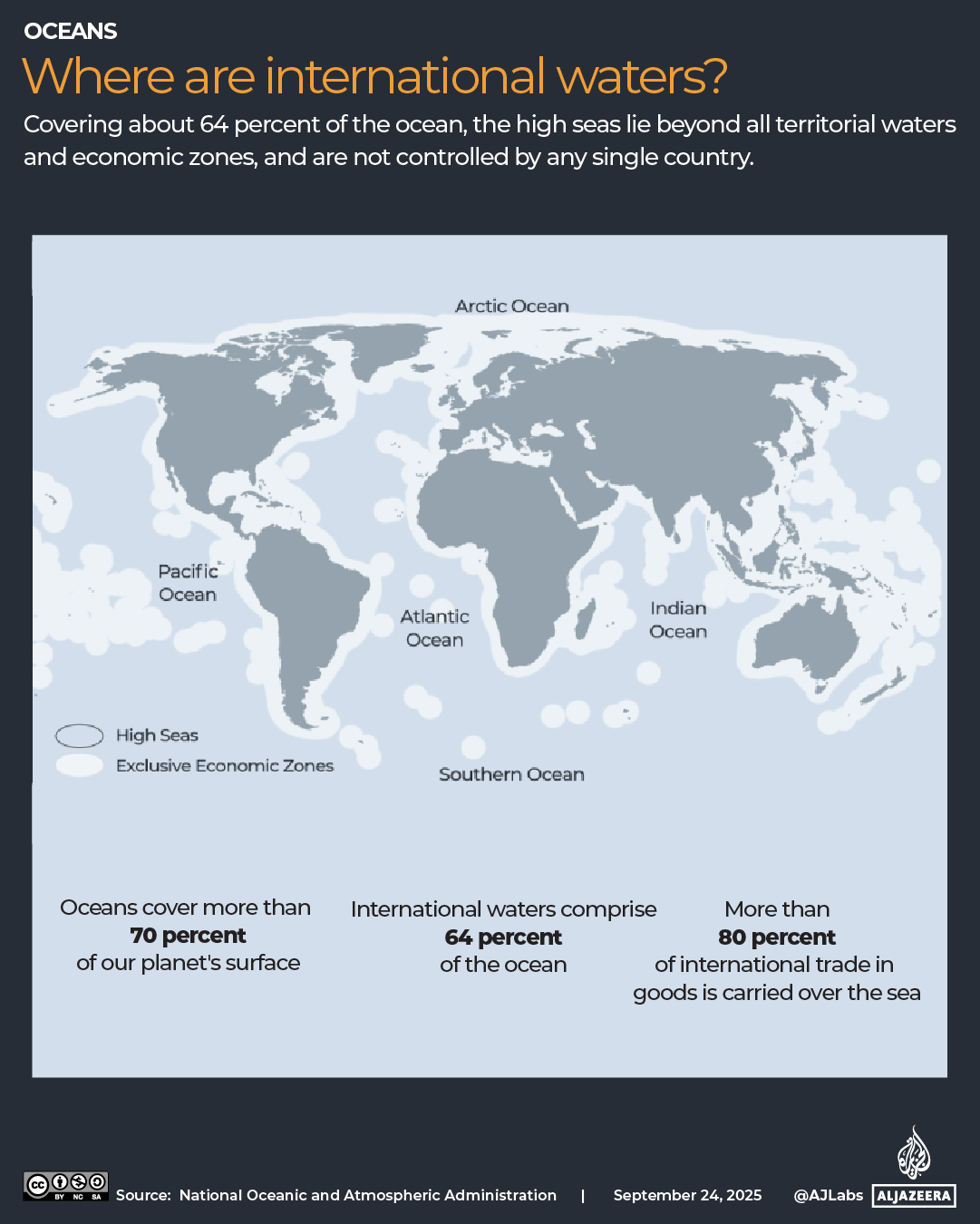
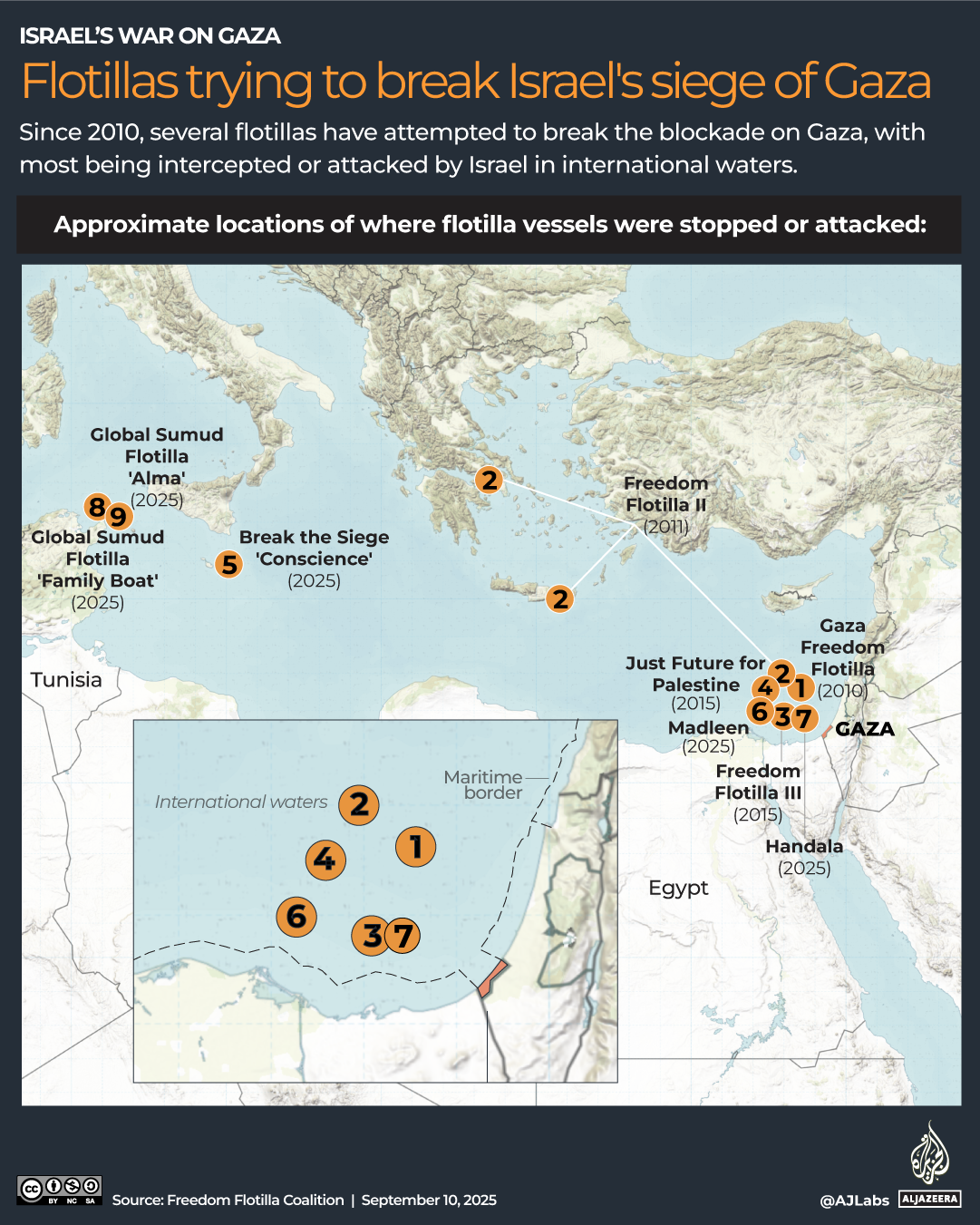
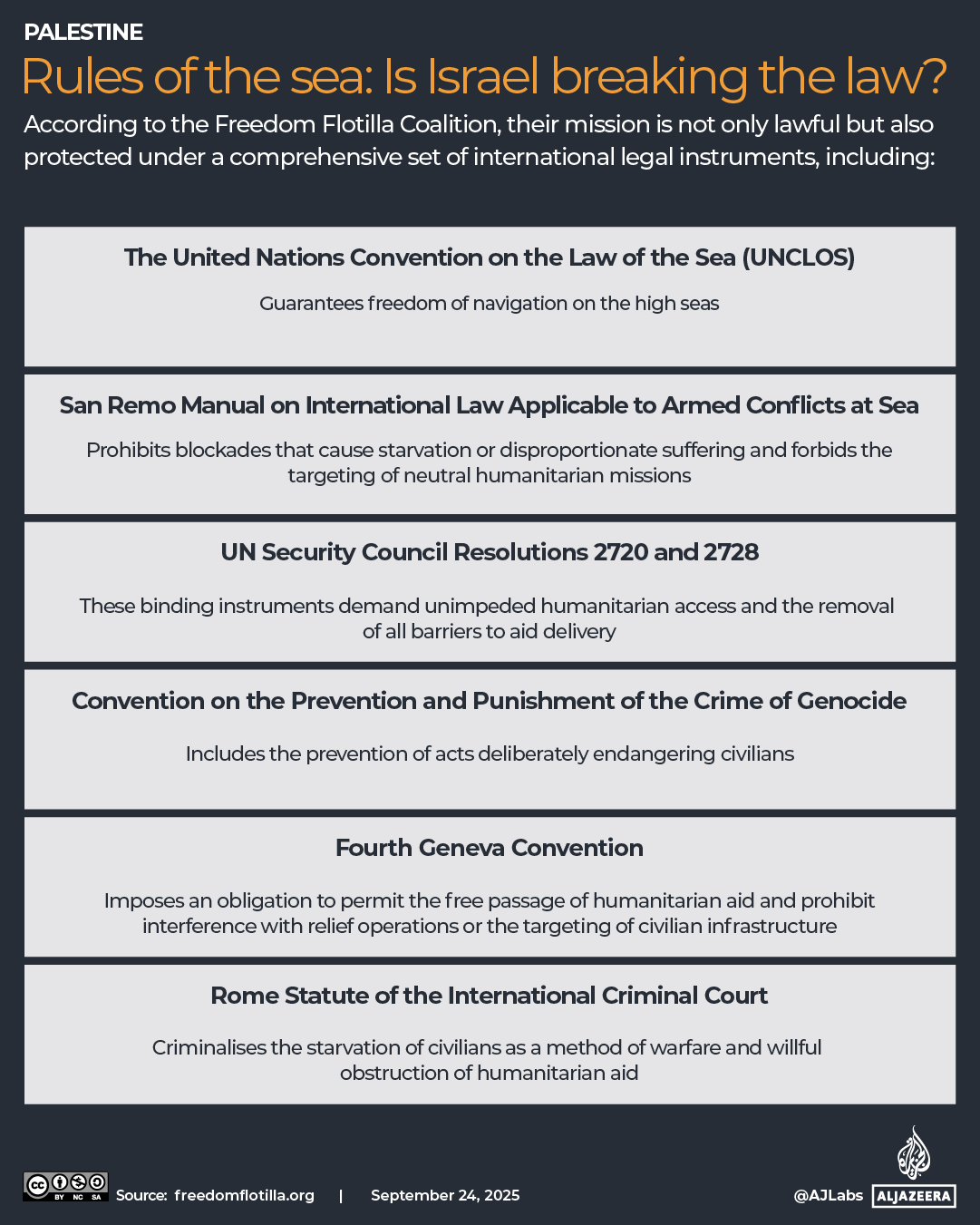
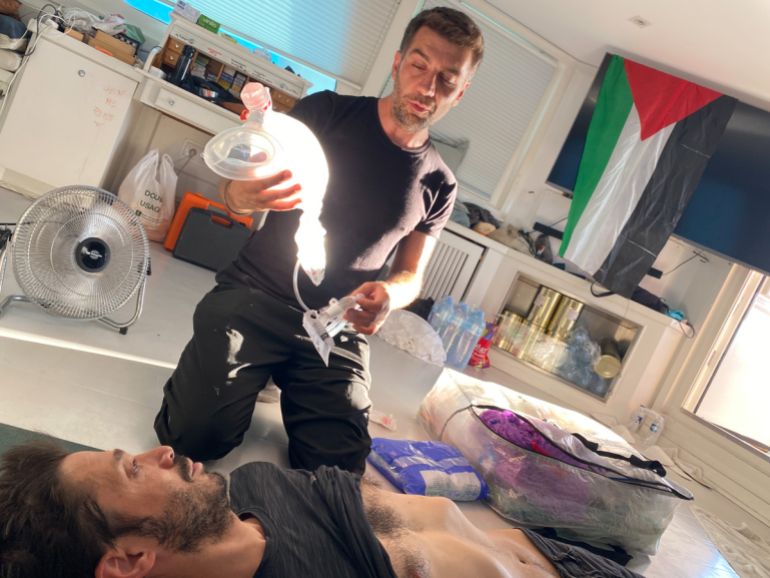



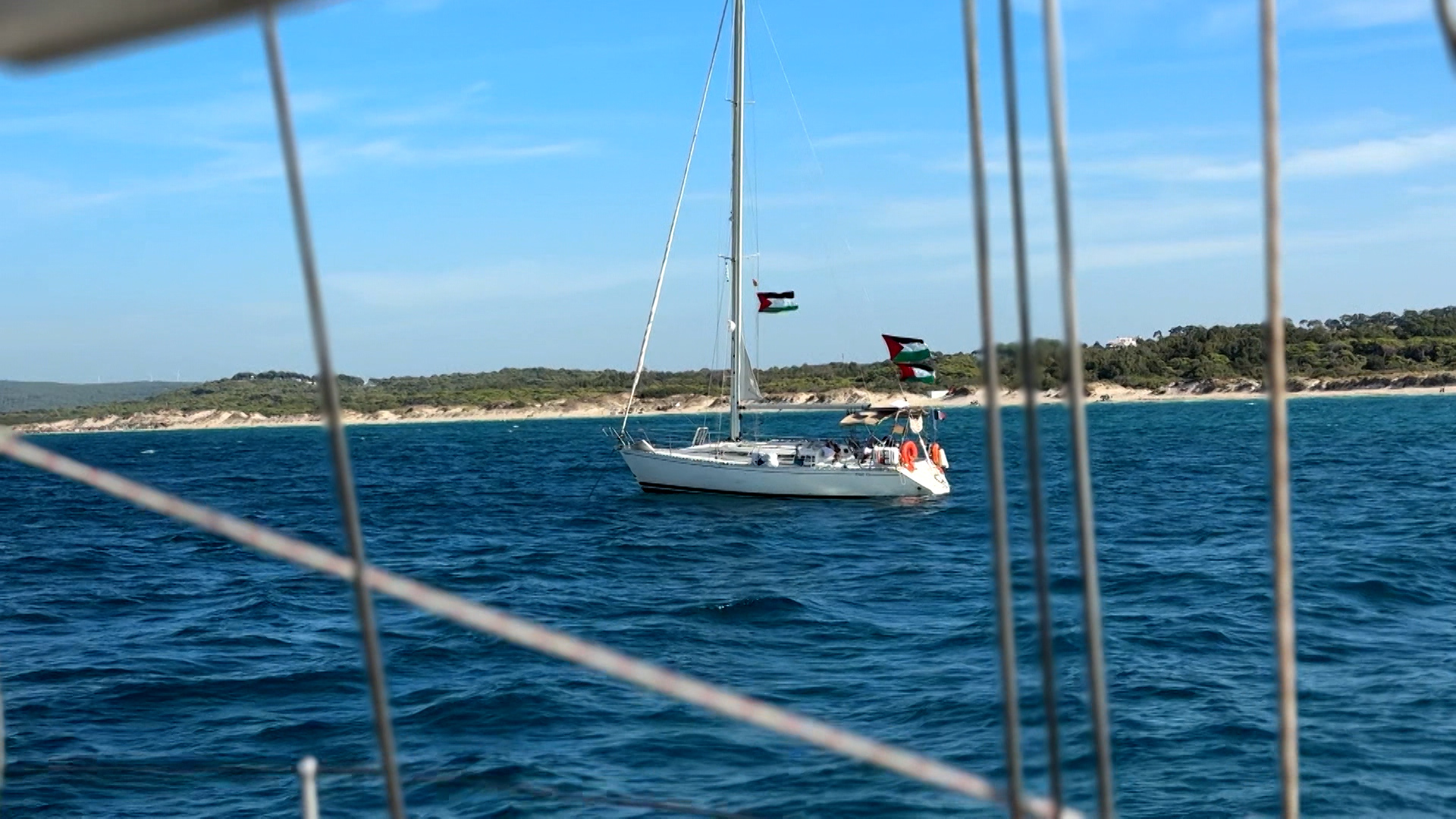
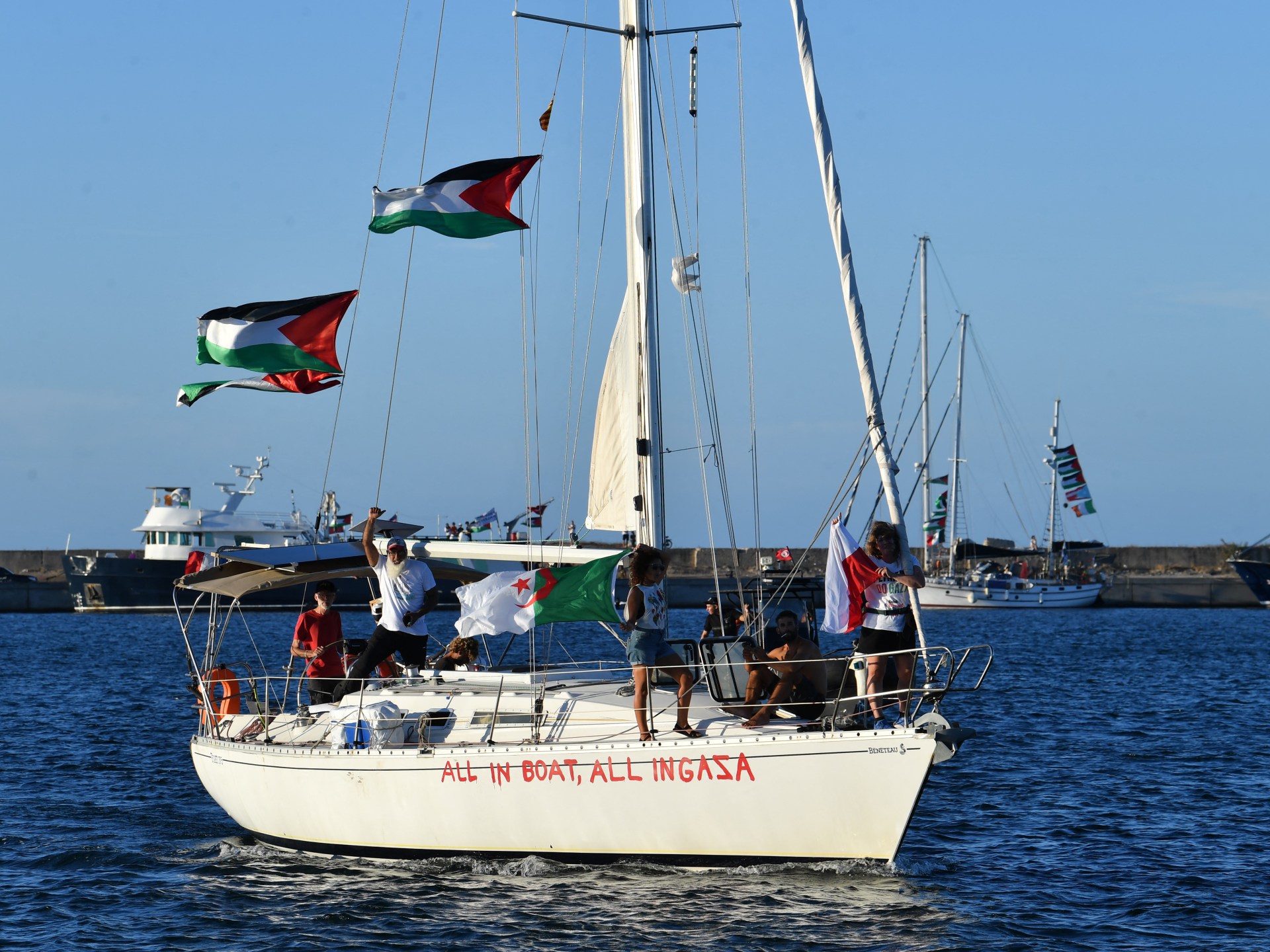
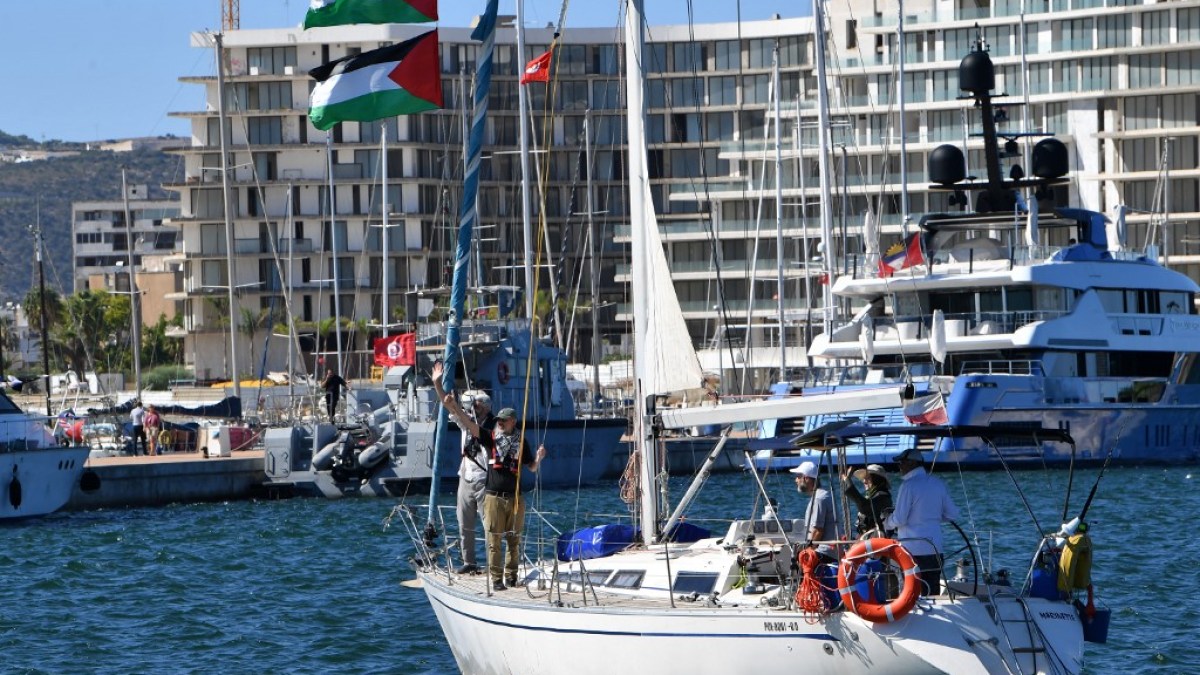
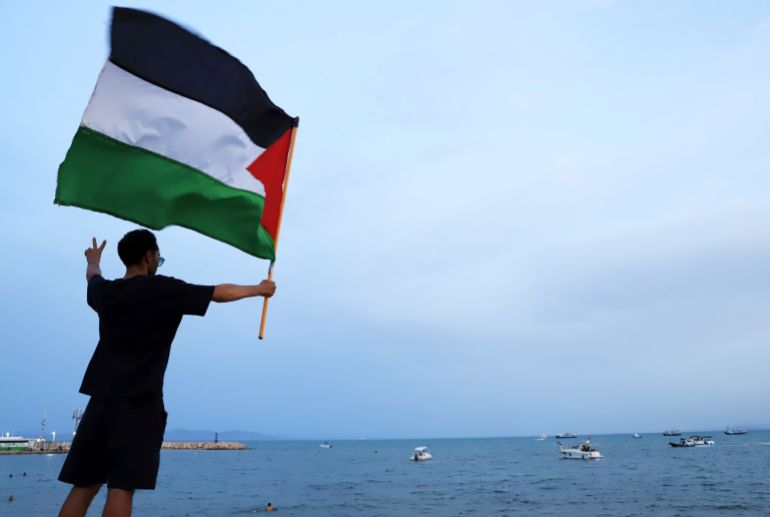

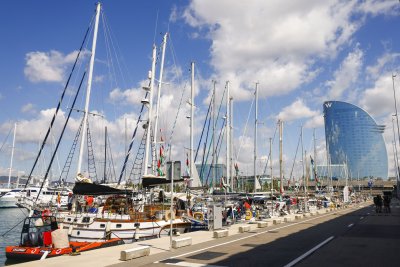
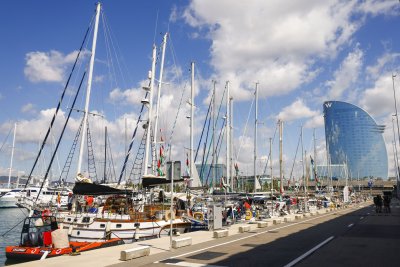
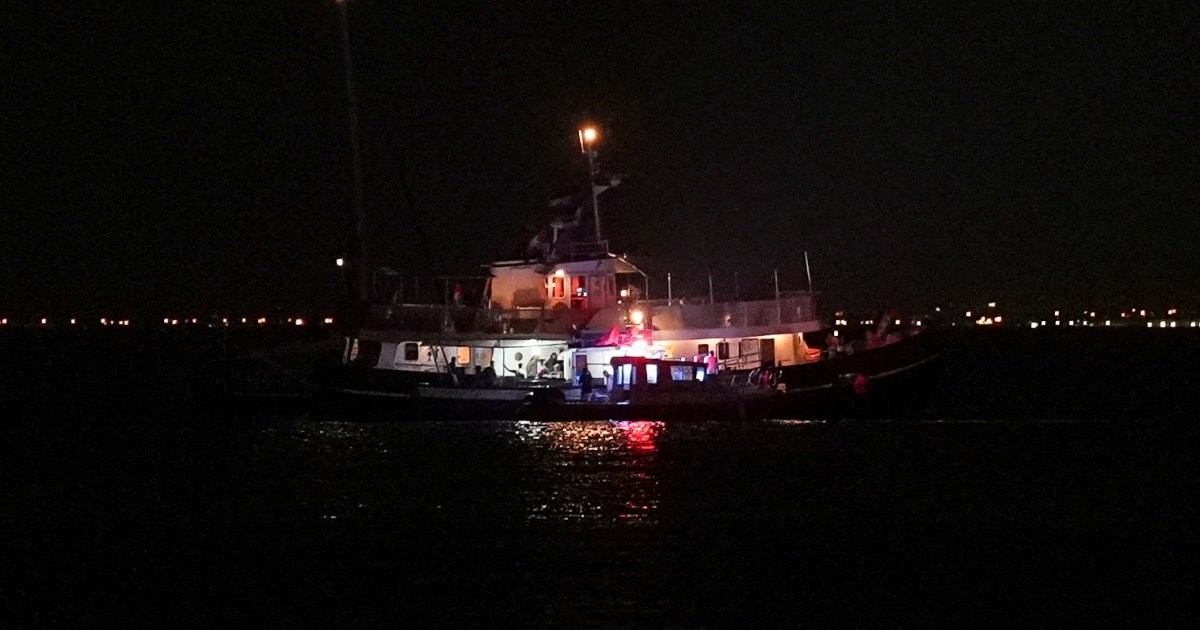
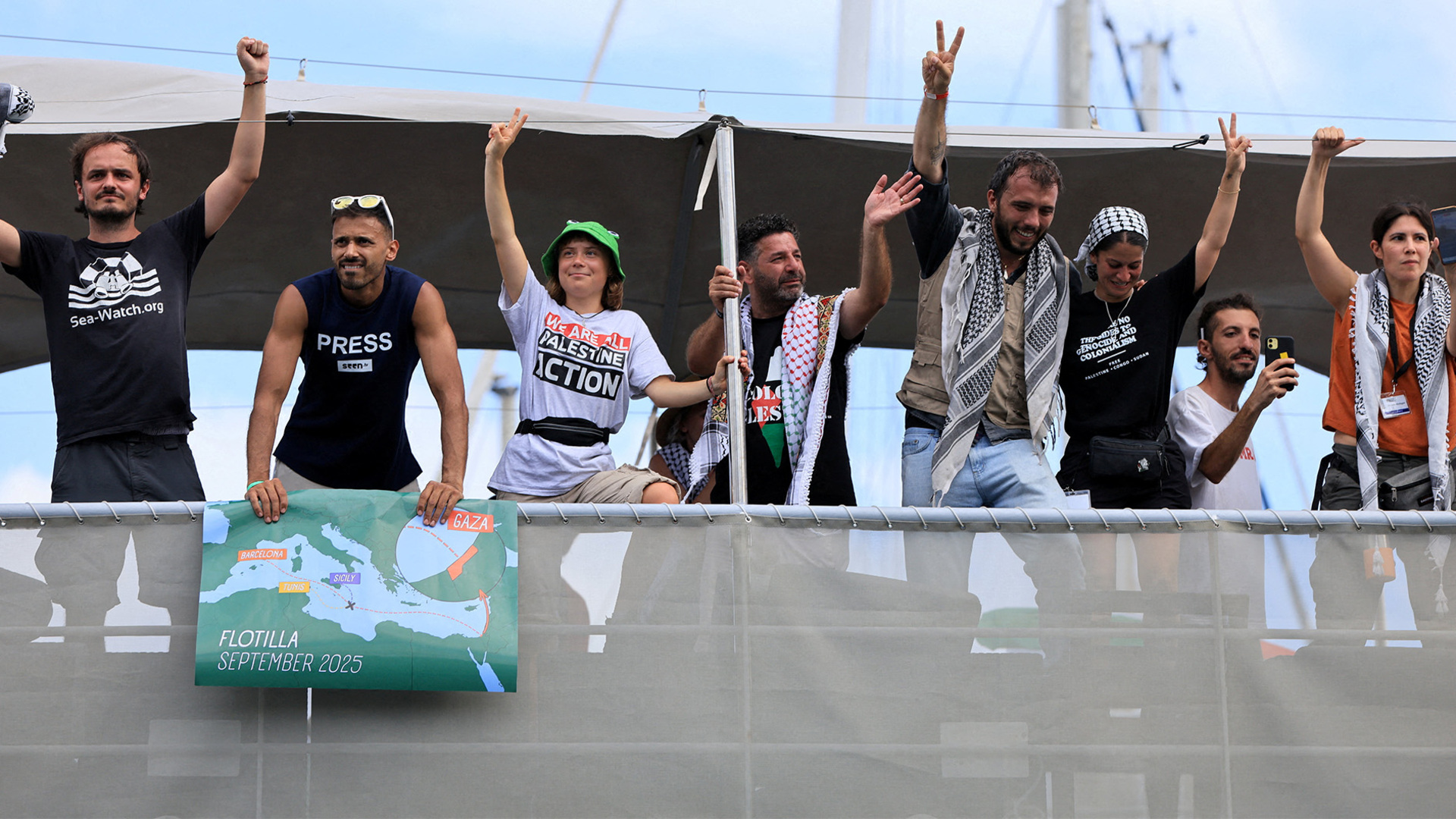
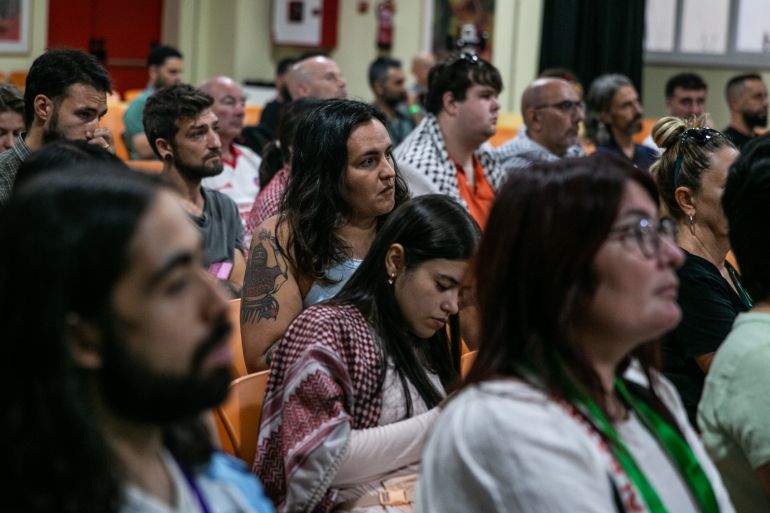

![Luna Valentina [Mauricio Morales/Al Jazeera]](https://www.aljazeera.com/wp-content/uploads/2025/08/576A6746-1756632046.jpg?w=770&resize=770%2C513&quality=80)

